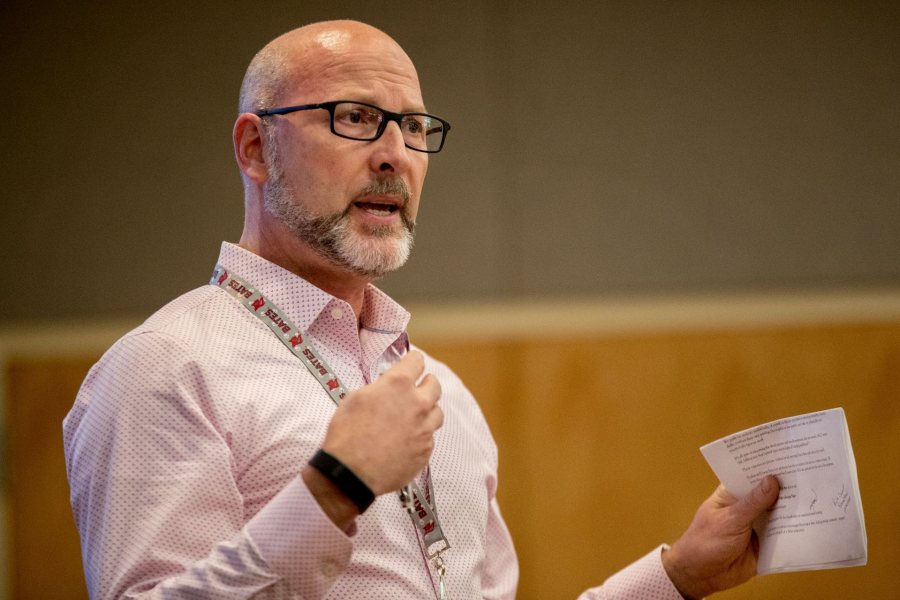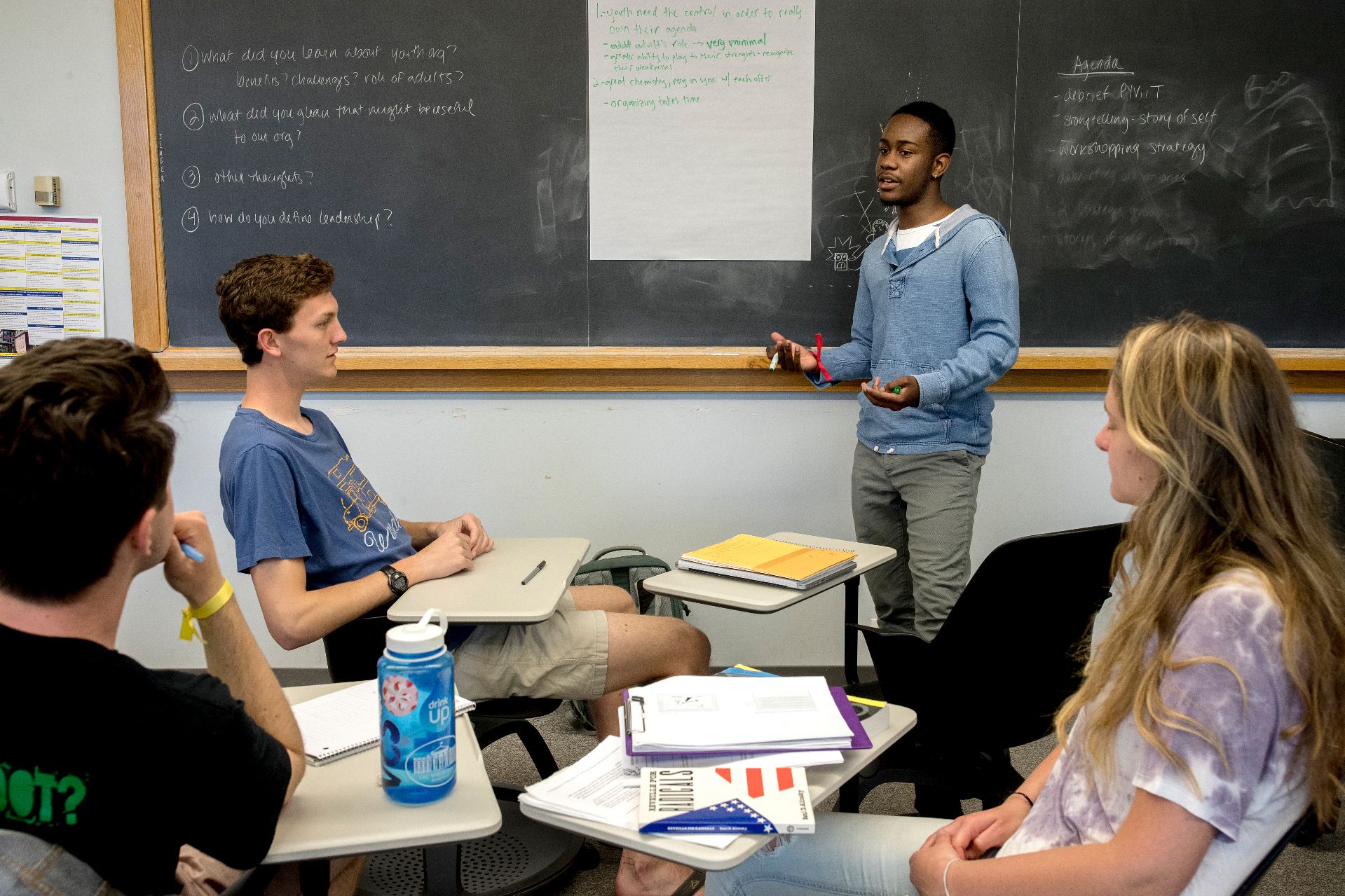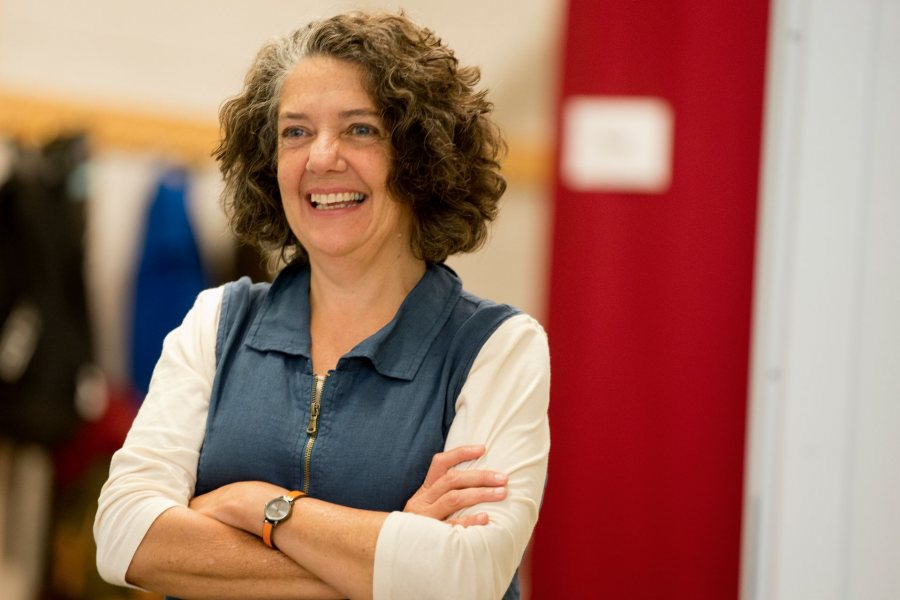
The Andrew W. Mellon Foundation has awarded Bates College a $1.2 million grant to support the faculty’s ongoing work to strengthen the college’s humanities and humanistic social sciences curriculum and teaching.
The five-year grant will fund strategies to create a 21st-century curriculum, support the faculty’s capacity to more effectively teach and mentor a diverse student population, and remove barriers to academic success particularly experienced by students from marginalized groups.
“This grant comes at a crucial moment for Bates,” said President Clayton Spencer. “Moving forward, we must ensure that our teaching and curriculum excite the interest and creativity of all of our students, preparing them to function as leaders in a pluralistic society.”
“Bates is committed to being a national leader in liberal arts education, and the Mellon grant is another example of the way our colleagues in the humanities and humanistic sciences are engaging in the national dialogue,” said Malcolm Hill, dean of the faculty and vice president for academic affairs.

The new Mellon Foundation grant “affords new opportunities to build inclusive curricula,” says Malcolm Hill, vice president for academic affairs and dean of the faculty, seen introducing professors at a Back to Bates academics panel in October. (Phyllis Graber Jensen/Bates College)
“Our faculty already employ powerful pedagogies, conduct consequential scholarship, and enrich the world with inspired creations,” he added. “The Mellon grant affords us new opportunities to build inclusive curricula to ensure that all students have access to these important fields of study. I am excited to support these efforts in the coming years.”
A major thrust of the grant-funded work will be to evaluate and strengthen the curriculum in many of the college’s 22 departments and programs in the humanities and humanistic social sciences, the latter including social and behavioral disciplines, such as history and sociology, that often explore the human experience through methods akin to the humanities.
“Their hope is to go beyond a ‘checklist’ approach and instead address equity and inclusion in a comprehensive way.”
“The Bates faculty have already been deeply engaged in discussions about how best to transform the curriculum to include a stronger focus on equity and inclusion. At each turn, their hope is to go beyond a ‘checklist’ approach and instead address equity and inclusion in a comprehensive way,” said Professor of Psychology Kathryn Graff Low, who served as interim dean of the faculty and vice president for academic affairs in 2017–18. “As such, Bates is in a strong position to make the most of this new Mellon grant.”
Specifically, the new grant will fund a series of “Curriculum Transformation Grants” that will enable the faculty, from a holistic perspective, to assess their curricula, courses, syllabi, and major requirements while following best practices for inclusive course design and pedagogy.
The curricular-revision work will also leverage existing best practices in three distinctive areas of the Bates curriculum — First Year Seminars, the Short Term (Re)Design program, and community-engaged courses — to ensure that all points of student contact with the curriculum emphasize critical thinking about power and privilege and reflect an approach to teaching and learning that invites student engagement.

Jahmari Josiah ’20 of the Bronx, N.Y., leads a discussion for the course “Community Organizing for Social Justice,” taught by Associate Professor of Education Mara Tieken and focusing on the theory and practice of community organizing for social or political change. (Phyllis Graber Jensen/Bates College)
Beyond courses and curricula, the Mellon grant will also support the creation of learning communities and other programs to help the faculty lead discussions about self-awareness, power, and structural barriers to success in the classroom.
“Over the past few years, we have begun to develop a sustainable network of well-trained faculty who are ready to reach out to their colleagues with advice and guidance on how inclusion, equity, and diversity play out in course design, pedagogy, and the mission of the college itself,” said Melinda Plastas, a Bates faculty member in gender and sexuality studies and a key designer of the Mellon grant proposal.
“The grant will allow us to expand our network and deepen the faculty’s shared understanding of the path to transform learning at Bates.”

Faculty member Melinda Plastas, a key designer of the Mellon grant proposal, watches as award-winning choreographer and dancer Sean Dorsey works with her students in October 2014. (Phyllis Graber Jensen/Bates College)
In recent years, Bates has received significant new gifts and grants to fund institution-wide work to redefine academic excellence in a way that encompasses greater equity and inclusion in the college’s academic programs.
In 2015, the college received a $1 million Mellon grant to advance faculty diversity and, in 2013, a $1 million Mellon grant to support innovative approaches to teaching and research in the humanities. Bates is also a leading member of the Creating Connections Consortium, which received a $5.5 million Mellon grant in 2017 to help to prepare young scholars from underrepresented groups for careers in liberal arts colleges.
In the sciences, Bates recently won a $1 million grant from the Howard Hughes Medical Institute to transform its STEM culture to better support all students in fields related to science, technology, engineering, and mathematics. In September, Bates announced a new professorship dedicated to bringing greater equity and inclusion to the STEM disciplines.
The gifts and grants are all part of the college’s ongoing fundraising initiative, The Bates Campaign, a multi-year effort to secure the programs and values that have defined Bates for a century and a half and to shape new strategies for a new age.




